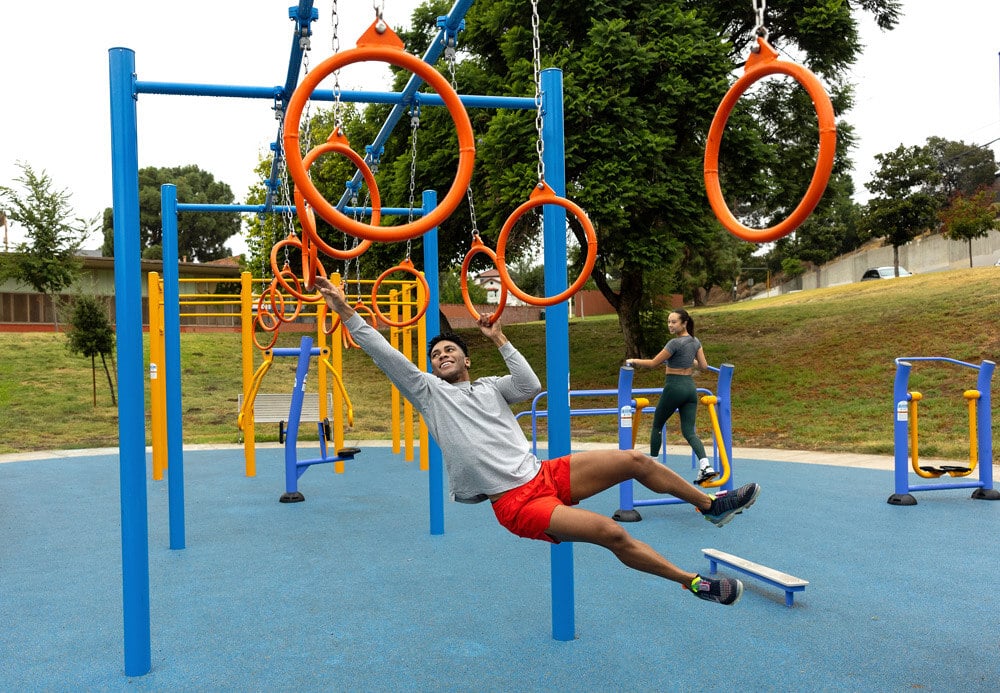- Home
- Education

Education
Learn & Earn CEUS
Discover how with our Professional Development Hub
Isn’t it great when training is engaging and relevant, too? Check out PlayCore’s Professional Development Hub, where we combine the knowledge of our Research Institute with expert presenters and practitioners to offer exciting content and CEU opportunities in the topics you’re looking for!
Formats to Meet Your Diverse Needs
.jpeg?width=1245&height=650&name=Learning%20(1).jpeg)
Live Virtual
Our live webinar courses offer opportunities to interact, ask questions, and be part of the experience!

On Demand Virtual
We know schedules are hectic, so we offer prerecorded courses that are ready when you are.

In Person
Catch us in person at conferences or contact us to schedule a session with a local certified instructor.
Explore Our Catalog of Education Topics
Explore Our Catalog of Education Topics
ADA Standards
ADA Standards for the Accessible Design of Outdoor Play Environments
Nature Play
Infusing Nature into the Everyday Spaces of Childhood
Outdoor Adult Fitness
Outdoor Adult Fitness Parks: Best Practices for Promoting Community Health by Increasing Physical Activity
Youth Physical Activity
Motivation to Move: Increasing Physical Activity for Intergenerational Users
Outdoor Music
Let’s Have a Jam Session! Designing Music into Communities and Public Spaces
Recreational Surfacing
Strong Foundations: Planning, Purchasing, & Protecting Play and Recreational Surfacing
Bicycling Infrastructure
Shift Into Gear: Bike Parking Standards and Installation
Intergenerational Play
Transformational Impact: Designing Public Spaces to Promote Intergenerational Play & Recreation
Maintenance
Playground Inspection and Maintenance: Preserving the Play Environment, Promoting the Value of Play, and Protecting Children
Aquatics
Water Works for Everyone: Making Pools Accessible for EveryBODY
Advocacy For Play & Recreation
Sample description of this topic can go here.
Dog Parks
Unleashed: Off-leash Dog Park Design Trends and Planning Tips
Inclusive Play
Inclusive Play Matters: Evidence-Based Design Best Practices for Play and Recreation Destinations
Shade
Shade Uncovered: Using Fabric Shade in Public, Private, and Commercial Environments

Committed to Best in Class Learning Opportunities
What Makes Learning Better with Us?
- Best in class sessions and learning opportunities across a variety of topics and formats that are engaging and relevant to your work.
- We consistently add and evolve content, topics, and instructors through the year for ongoing learning.
- Our events are complimentary and include a variety of useful resources and tools to help you turn research into practice.
- We utilize eSSENTIAL Accessibility™, an innovative assistive technology offered through CommPartners to make webinar content more accessible to people with disabilities.
- We offer CEU’s through IACET, LACES, and AIA.
- Your professional development CEUs are stored in your account within the platform so you’ll never have to hunt for them again.
Ready to get started?

Accredited to Meet Your CEU Needs
Through rigorous, external accreditation processes, PlayCore has achieved the highest standard to offer complimentary Continuing Education Units (CEUs). We are proud to be an accredited provider of CEUs through the International Accreditors for Continuing Education and Training (IACET), Landscape Architecture Continuing Education System (LA CES), and the American Institute of Architects (AIA).
This distinction reinforces our commitment to sharing knowledge and providing exceptional professional development and training programs that are meaningful to professionals across a variety of fields.
* CEUs can be applied toward NRPA CPRP/CPRE renewal, and some courses may offer additional accreditations. Be sure to check each course’s description under the “credits offered” tab for details. Participants receive documentation of their learning and a certificate of completion after demonstrating successful mastery of the learning objectives and session requirements.



Sharing Knowledge and Best Practices
.jpg?width=1250&height=833&name=Learning%20(1).jpg)
Certified Instructors
PlayCore’s credentialed instructors are not only experts in their fields, they are skilled at delivering valuable adult learning experiences. Tailoring to the needs of the audience, they engage participants, lead interactive activities, and arm audiences with resources and knowledge relevant to their work.
Deeply passionate about building communities through play and recreation, our qualified instructors deliver hundreds of professional development events at conferences, lunch and learns, symposiums, and virtual events each year.
Schedule a learning session with a certified trainer today!

Industry Experts and Partners
PlayCore collaborates with our scholars, industry partners, and practitioners to provide relevant content across a variety of topics. From the science of play, inclusion, funding, community engagement, programming, and evidence-based best practices, and more- these experts share their knowledge through panel discussions, interactive virtual events, and conference sessions.
Check out our upcoming featured speakers and events by visiting education.playore.com
What Our Customers Are Saying
"Having the panelists share their lived experiences was invaluable for understanding accessibility beyond compliance.“
Panel Attendee
Disability Park Awareness“Through this partnership, we have not only advocated for the essential role of play in healthy child development but have also anchored our efforts in rigorous research. ... One of the most visible and gratifying results has been the installation of 92 playgrounds throughout California. They are more than just structures; We remain deeply grateful for your support and dedication.”
Stephanie Stephens
CPRS Executive Director“[I appreciated] the firsthand knowledge Bill has and how it actually affects him. Great explanation of what is needed and why – things I wouldn't think about."